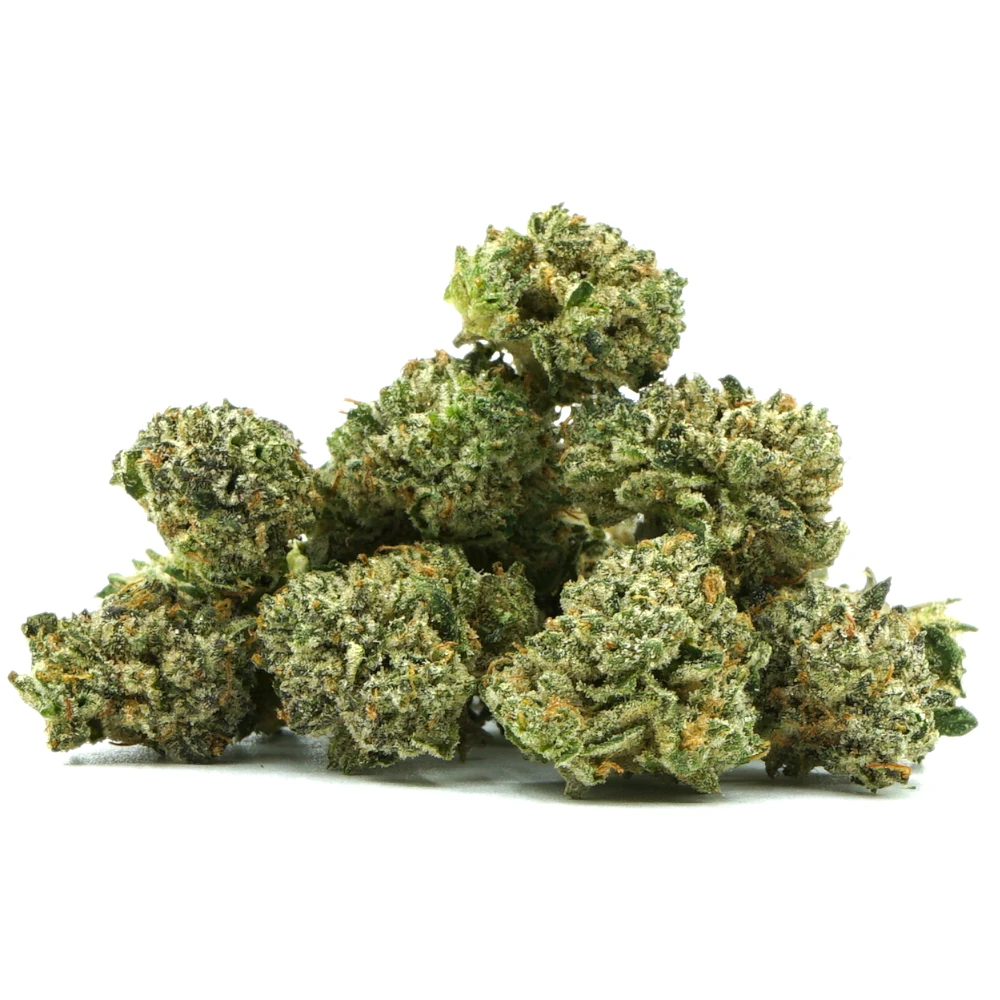| Subtotal | Items |
|---|---|
|
$175-249
→7 Grams
|

|
|
$250-399
→14 Grams
|

|
|
$400+
→28 Grams
|

|
CBD
How Can CBD Benefit Your Pet? Here’s What to Know
The use of cannabis products is on the rise, both for humans and pets. Many pet parents and veterinarians do not consider CBD an alternative option for multiple health conditions. Early research shows that it is best to work with a veterinarian who is familiar with CBD products if you want to give this therapy to your pet.
This article discusses current CBD research. How safe is it, and is it the right choice for your furry friend? Please read on to find out. This article is for cannabis enthusiasts like you!
What Is CBD?
The two main active ingredients in the cannabis plant are THC and cannabidiol CBD. THC is a substance responsible for the high that people experience when they consume marijuana. On the other hand, CBD does not trigger a high, and studies suggest that it has a wide range of potential benefits.
Remember that restrictions on buying CBD products differ from state to state. But many people across the US can easily purchase these products in physical dispensaries and online.
But it is crucial to note that the FDA has not yet determined whether or not CBD is safe for the following applications: as a food additive, dietary supplement, or therapy for pets. Although there is one FDA-approved human medication that contains CBD, no products have yet been approved for animals.
Curious to taste unique CBD treats you can share with your dog? Try our Pineapple CBD Jelly Bomb.
What Does the Research Say About CBD’s Effects on Pets?
The bad news is that there is not much research on using CBD for pets. Current recommendations are either based on veterinarians’ professional experiences or taken from minimal studies.
As the popularity of CBD use for pets continues to grow, the number and size of the studies will also increase and provide both vet and pet parents more guidance on how to best use these products.
Is CBD Safe for Pets?
Bear in mind that the FDA has not yet approved any prescription or OTC CBD product for animal use. Hence, CBD pet products on the market may not have been tested for safety or effectiveness. Bear in mind that the claims of certain companies that promote the effectiveness of their products have not been reviewed or approved either. There are also many concerns surrounding the product quality of CBD.
Problems that arise include products with a different CBD amount than what is stated on the label and impurities like THC or pesticides. If you decide to try CBD for your pets, you may need to dig deeper to find exactly how the product you are choosing is made.
If you have any questions, you must look on the brand’s website or contact the company to ask for their COA certificate of analysis. The COA is a public document that verifies ingredients written on the product’s label. If a company cannot provide you with an up-to-date certification, it is not recommended that you purchase a product from that company.
What Are the Risks of Treating My Pet With CBD?
The side effects of using CBD on animals are comparable to those experienced by humans. Common issues include appetite changes, fatigue, and diarrhea. In many cases, the higher the dose of CBD you give your pet, the more likely side effects occur.
In many cases, it is unnecessary to treat these mild reactions because they are pretty mild or get better with time. But if these side effects don’t fade or improve, you must contact your pet’s veterinarian and keep a close watch on your pet to ensure they are not hurt.
Can CBD Cause My Pet to Get High?
CBD products, including cannabis edibles, do not generate a high or euphoric feeling. But some pet owners say their pets are a little out of sorts when they consume CBD. If you notice that your pet exhibits the behavior of them getting high after a dose, there is a reason why this might be happening.
Before purchasing any CBD product, you must carefully read the label for specific information about its contents. If it is a full spectrum product, it has a 0.3% THC which is the legal limit according to the Agricultural Improvement Act of 2018. This seemingly negligible amount might be enough to cause side effects on your pet, especially if they are susceptible to it.
What Are Forms of CBD Available for Pets?
If your vet recommends CBD for your pet, a wide range of CBD pet products are available on the market, including oils, treats, and topical products. The CBD is often delivered orally or sublingually. Bottled oils with droppers are preferred when you first start providing CBD to your pet because it is easier to increase the dose gradually rather than being limited to a fixed amount in a tablet, capsule or treat.
You might be asking, are human CBD products safer for pets? Should you purchase CBD products specifically intended for pets?
Products meant for humans have the same CBD as those formulated for pets. Hence, your human CBD might be a good option for your pet. But you must strictly follow recommendations from your vet. If a product is not specifically made for pets, you must read the label and double-check for ingredients that might be toxic to pets, such as chocolate, essential oils, and artificial sweeteners.
Besides being formulated without these dangerous ingredients, pet-specific CBD products for oral delivery are usually flavored to appeal to your furry friend’s taste. Hence, you will find many CBD products for pets like chicken, fish, and beef. Remember that some CBD products have a grassy taste that your pet may find icky. If your dog or cat turns up their nose at your chosen product, try to mask it within a spoonful of your pet’s favorite treat.
What CBD Dosage Should Be Used for Pets?
There aren’t too many FDA-approved products for use in animals, and not many studies look at safety and efficacy.
Further research is required to determine more exact doses. If your veterinarian prescribes or recommends CBD for your pet, follow their instructions because the dosage might vary depending on why you are using the product.
In one study that looked at the efficacy of CBD in alleviating symptoms of osteoarthritis in dogs, researchers discovered that a 2 mg per kilogram of body weight given twice a day decreases pain without owners reporting any side effects. But blood test results suggest that there may have been some liver damage. For this reason, your vet must ensure that your pets are being monitored appropriately.
As with humans who have never consumed CBD before, starting your pet on a lower dose is crucial and raising it slowly.
For example, you can start one-quarter or one-half of the dose recommended on the label. Afterwards, observe how your pet reacts to incremental amounts of CBD.
But if your pet does not experience relief, your vet may have to provide another dose of the same amount in 30 to 60 minutes and observe how they respond. Because of the shortage of research on using CBD on animals, it is best to discuss what dose is safe with your veterinarian, who has experience with CBD use to help with your pet’s condition.
What Pet Health Problems Can CBD Help Manage?
CBD is beneficial for animals in many situations like the following: inflammatory problems, seizures, pain relief, and anxiety.
The basis of CBD for pet health problems is the endocannabinoid system ECS. The goal of ECS is to maintain and balance processes in the body. It is for this reason that CBD has numerous potential benefits, such as the following:
Pain
Once CBD is absorbed in an animal’s body, it may lower inflammation and relieve pain.
While experts are still determining how CBD eases pain, it is believed that the effects of ECS on nerves involved in creating pain sensations are where the efficacy of CBD lies. More specifically, studies reveal that joint inflammation relieves osteoarthritis, aches, pains, and pets.
Anxiety
Like humans, most pets that experience anxiety leads to several troublesome behaviors, such as urinating inappropriately. CBD is believed to ease nervousness, generate calm, and soothe the nerves – CBD activates the areas of the brain that produce serotonin hormone that helps with the feeling of happiness and relaxation.
Seizures
CBD helps with epilepsy in dogs by decreasing seizure frequency when used combined with traditional anti-seizure medications.
Although experts do not understand how CBD is a good treatment for seizures, it is believed that it prevents nerves in the brain from firing excessively. A lower number of electrolytes have a role in seizure conditions.
A ground-breaking CBD medication called Epidiolex is FDA approved for two severe seizure conditions: Lennox-Gastaut syndrome and Dravet syndrome.
It is also approved for seizure treatment associated with tuberculosis sclerosis complex. But studies have not been conducted on its application to animals.
Despite all the favorable studies surrounding CBD use for pets, always consult with a veterinarian first before using any product.
How Can I Tell if CBD Is Helping My Pet?
Pets cannot communicate whether they are feeling better. Hence, observing their behavior is the most reliable way to tell if CBD is effective. After providing a dose of CBD, you must be vigilant in observing your pet to determine if their symptoms seem to improve or not. Contingent on your pet’s condition, symptom relief may happen in as little as 30 minutes or take up a few weeks of consistent use.
As discussed previously, CBD impacts every animal differently. If your vet recommends trying CBD out, you may have to go through several brands, doses, or forms to find what works for your four-legged companion. But finding the right product requires patience. CBD therapy’s outcome has a healthy and happy pet.
What Are the Possible Side Effects of CBD in Pets?
While there is no scientific data on the side effects for dogs, there are possible side effects contingent on how CBD impacts humans. To decrease any possible side effects, make sure you are following the proper dosages.
Dry Mouth
Research determined that CBD decreases the production of saliva. For dogs, this manifests as increased thirst.
Lower Blood Pressure
High CBD doses have been known to cause a temporary drop in blood pressure. Even though the drop will be incremental, it could ensure a short-term light-headed feeling.
Drowsiness
Dog parents have utilized CBD for anxiety treatment. CBD’s calming effect can also cause drowsiness, especially when using higher doses.
What Stance Do Veterinarians Take on CBD?
A recent study of 2,131 participants by the VIN news service discovered that 63% of veterinarians reported they were asked about CBD treatment for pets at least once a month. But veterinarians are not always willing to discuss it. Also, those who recommend pet owners to use CBD for their pets might risk penalties contingent on state laws.
In other states that have a little bit more freedom. For example, California passed a law that prevents state regulators from penalizing veterinarians for discussing cannabis use for pets. Other bills are also in the works. But for now, do not expect your veterinarian to recommend CBD products or for them to give a prescription.
Bear in mind that even in states where medical cannabis is legalized, the laws only allow human healthcare providers to prescribe cannabis to human users. Veterinarians are not authorized to prescribe or recommend such products for use in animal patients.
Ways to Give CBD to Dogs
CBD pets come in numerous forms, such as treats, oils, and creams. But research on each of these methods’ efficacy is sparse.
In one 2018 Colorado State University study, dogs with epilepsy found that CBD oil delivered orally was more effective than a cream or gel capsule. But more research is needed before any conclusions can be made.
CBD Products on the Market
If you and your vet decided you should try CBD as a treatment for your dog, there are several things to remember when buying these products. Not all CBD products are created the same, and you must purchase high-quality CBD to ensure it has a better chance of being effective.
Go for Organic
If a CBD product is not organic, it must at least contain no pesticides and solvents.
Price
The price must not be your sole basis when shopping for products. High quality and purity often come at a higher cost.
A cheaper option might contain toxic substances like pesticides, herbicides, or heavy metals. You must also ensure that your CBD is free of additives.
Check the Research
The manufacturer must provide a certificate that guarantees the amount of CBD in a product. Most CBD products only contain small amounts of CBD. You must ensure that there is little or no THC in the product.
Liquid Form CBD
You can purchase dog treats that contain CBD. But the best form to administer CBD is via oil or tincture. This way, you can fine-tune your dog’s dose drop by drop.
Conclusion
As with any trend on pets and wellness, when it comes to CBD treatment for dogs, there is much information floating around. It is tricky to know what is accurate and what is an exaggeration. Of course, you want to do the best for your pup, which can lead to questions like what I need to know about CBD for dogs?
But emerging research-validated CBD may help with several pet health conditions like the following: anxiety, pain, and seizures.
Although more studies are needed to confirm its benefits, most pet parents already use CBD with terrific results.
But because these products have not been reviewed or approved by the FDA, it is crucial to discuss using CBD with a veterinarian who has experience treating pets with CBD. Together with your vet, you can devise a plan to safely help your furry friend feel the very best via CBD. Do you want to give your pet relief from CBD now? Please visit us. Cannabis Edibles Explained and How To Consume Them.








